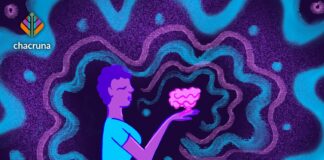Serving Stereotypes, Ignoring Realities: Bias in Mental Health Provision for Black...
The right therapy for black communities addresses the challenges faced by Black communities, particularly concerning racial stress and trauma.
Untangling the Knots of Power: Exploring the Impact of Power Decline...
Can power blind one to the truth? This study conducted in East China suggests yes, and that self-esteem plays a major role.
Sundown State. Uncovering Hidden Injustices of a Psychology Board
Uncovering bias in psychology boards requires confronting the uncomfortable truths lurking beneath the surface of professional oversight.
Unveiling Trauma Beyond the Norm: The OBTSI Shines a Light on...
The oppression-based traumatic stress inventory (OBTSI) provides a framework for measuring racism and trauma at the individual level. Developed to navigate the complexities of oppression-related trauma, the OBTSI represents a significant leap forward in the field of psychology.
The Power of Cancel Culture: Empowerment and Validation in Collective Action
Cancel culture can be effective at empowering and validating the experiences of marginalized groups who have experienced harm.
Compassion as Catalyst: What Does It Mean to be an Ally?
What does it mean to be an ally? It demands a genuine commitment to understanding and addressing the root causes of injustice.
Confronting Challenges for Postdoctoral Researchers in German Academia
Confronting challenges for postdoctoral researchers in German academia requires addressing critical gaps in Germany's legal framework for diversity and equal opportunity, in addressing issues beyond gender.
Navigating Race and Privilege in Classroom Discussions: Empowering Voices and Fostering...
Teaching race, ethnicity, and privilege in the classroom requires instructors to navigate student discomfort. Discussions about whiteness may be perceived as uncomfortable or challenging, particularly for individuals who may not have critically examined their own racial identity or privilege.
Unveiling Emotional Spillover: Differential Prejudice between Romani and Hungarian Minorities
Emotions play a major role in understanding prejudice against Romani and Hungarians in Romania and elsewhere in the world. The contemporary Romani community continues to face significant challenges and marginalization in living conditions, lack of access to basic facilities, and negative portrayal in the media.
Healing the Healers: Addressing Race and Privilege in Psychotherapy
Decolonizing psychotherapy curriculum requires integrating diverse perspectives, acknowledging historical contributions from marginalized groups, and promoting cultural competence training for all students. Psychologists must also heal themselves before they can effectively heal others, especially in the context of racial dynamics.














